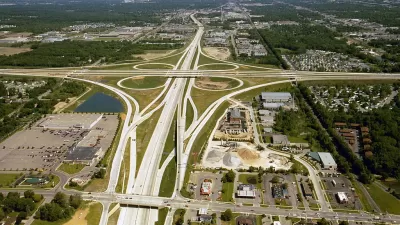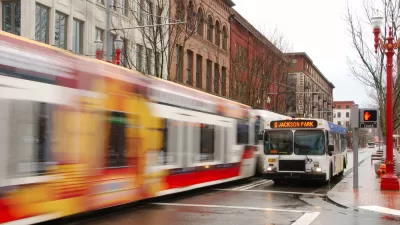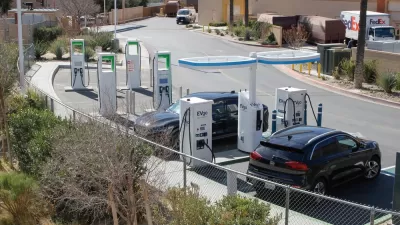No one lakes toll roads, but everyone relies on the revenue they generate for all kinds of transportation projects.

Luz Lazo reports:
Add another victim to the list of industries hit hard by the coronavirus pandemic: toll road operators.
The industry’s losses, which by estimates will exceed $9 billion nationwide, are prompting public and private toll operators to tap their reserves, delay capital projects and cut jobs.
The consequences of the downturn in the toll road business has consequences for other kinds of projects as well: revenue from toll roads is used to finance construction on other projects. While construction projects haven't seen an impact yet in the D.C. area, according to Lazo, operations are already taking a hit, and worse is yet to come.
The Maryland Transportation Authority said it is not funding vacant positions and is deferring the replacement and purchase of additional equipment such as computers. It has saved money by not funding vacant positions and not renewing 44 temporary toll collection contracts; the state moved to an all-electronic system during the pandemic.
And in Virginia, it's expected that construction will eventually face funding consequences:
In Virginia, lost revenue from the 66 Express Lanes means the corridor is unlikely to yield millions of dollars that would help pay for new bus routes and the construction of new Metro station entrances and bus lanes.
The article includes details about revenue on specific toll roads in the D.C. area as well as locations farther afield, like Pennsylvania, Georgia, and California, in addition to a lot more context and analysis on the effect of the novel coronavirus on toll road revenue.
FULL STORY: People are driving less and skipping the toll roads, leaving less money for local projects

Study: Maui’s Plan to Convert Vacation Rentals to Long-Term Housing Could Cause Nearly $1 Billion Economic Loss
The plan would reduce visitor accommodation by 25,% resulting in 1,900 jobs lost.

North Texas Transit Leaders Tout Benefits of TOD for Growing Region
At a summit focused on transit-oriented development, policymakers discussed how North Texas’ expanded light rail system can serve as a tool for economic growth.

Using Old Oil and Gas Wells for Green Energy Storage
Penn State researchers have found that repurposing abandoned oil and gas wells for geothermal-assisted compressed-air energy storage can boost efficiency, reduce environmental risks, and support clean energy and job transitions.

Santa Barbara Could Build Housing on County Land
County supervisors moved forward a proposal to build workforce housing on two county-owned parcels.

San Mateo Formally Opposes Freeway Project
The city council will send a letter to Caltrans urging the agency to reconsider a plan to expand the 101 through the city of San Mateo.

A Bronx Community Fights to Have its Voice Heard
After organizing and giving input for decades, the community around the Kingsbridge Armory might actually see it redeveloped — and they want to continue to have a say in how it goes.
Urban Design for Planners 1: Software Tools
This six-course series explores essential urban design concepts using open source software and equips planners with the tools they need to participate fully in the urban design process.
Planning for Universal Design
Learn the tools for implementing Universal Design in planning regulations.
Ascent Environmental
Borough of Carlisle
Institute for Housing and Urban Development Studies (IHS)
City of Grandview
Harvard GSD Executive Education
Toledo-Lucas County Plan Commissions
Salt Lake City
NYU Wagner Graduate School of Public Service





























